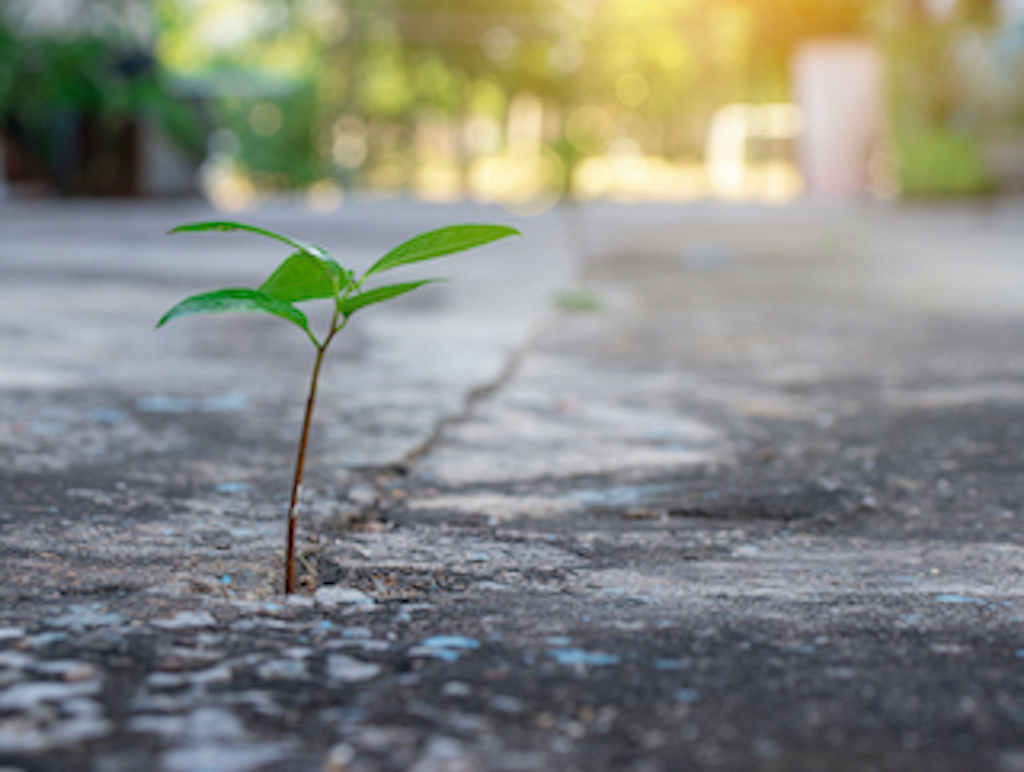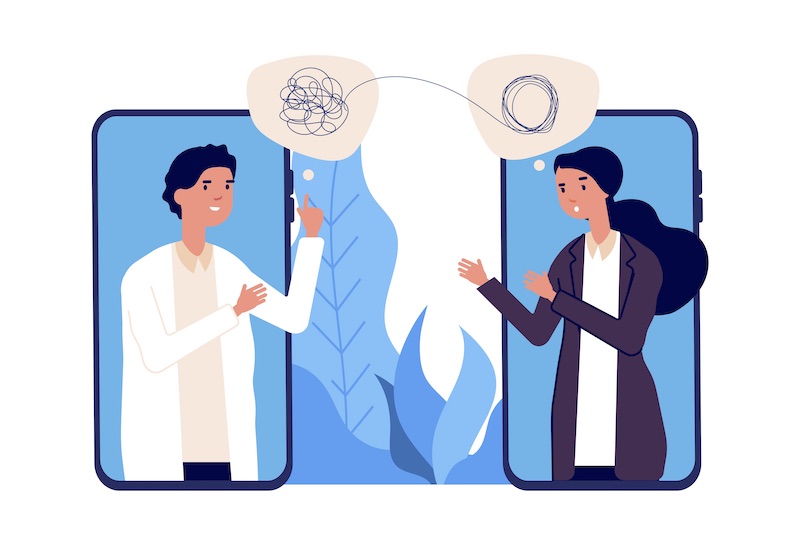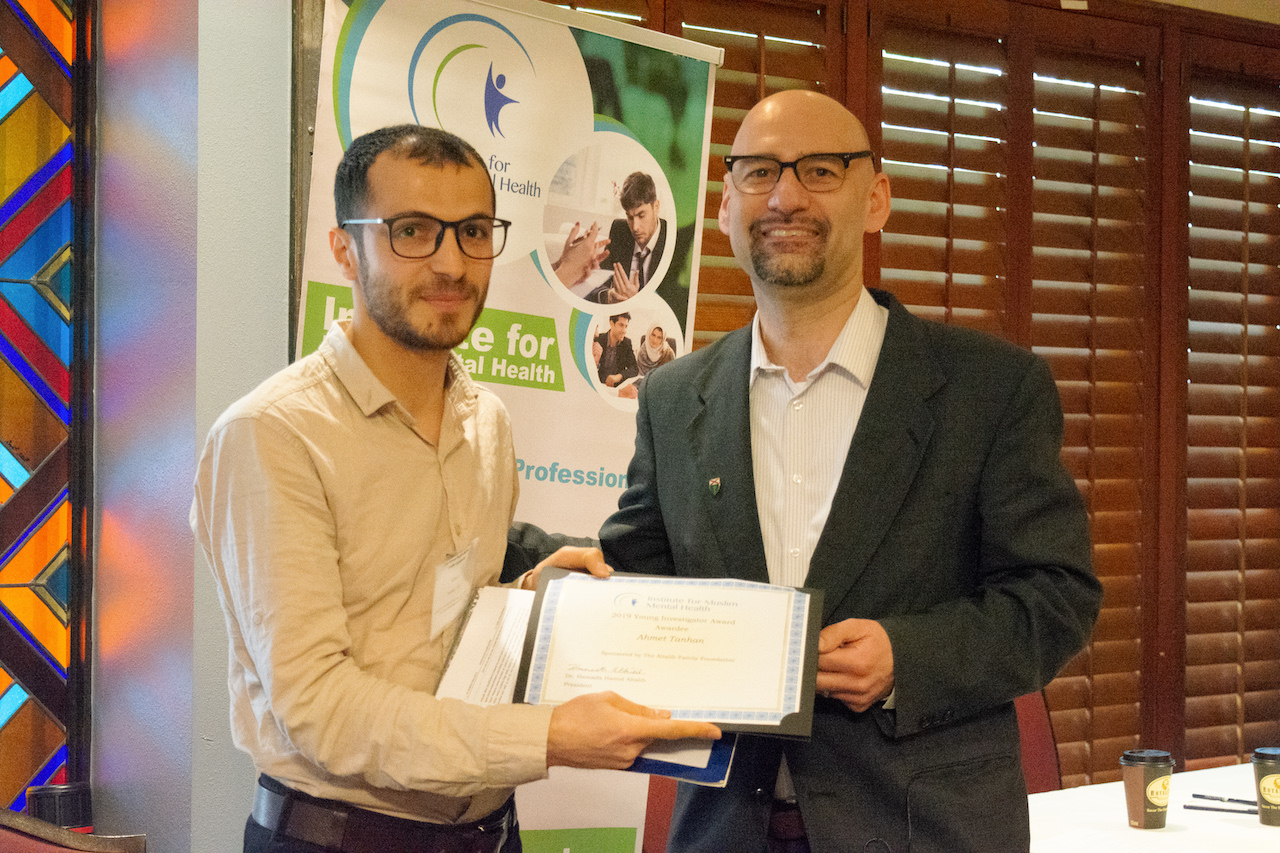Posts by neonadmin
Suicide Postvention – Crisis Response Summary
Suicide is a human condition. As such, Muslims are not immune to mental health challenges, mental illness, and suicidal ideation. The Institute for Muslim Mental Health coordinated and hosted an emergency Meet the Expert Pro-Series webinar on Thursday, April 8th 2021 in response to a mental health crisis in the Muslim community. The Pro-series webinars are geared towards Muslim mental health practitioners and community faith leaders. This article summarizes the key learning points of Dr. Rania Awaad’s webinar presentation.
Read MoreCoping with COVID: Best practices for mental health professionals during the pandemic.
Who could have imagined that, a few short months into 2020, the world would come to a complete standstill? Businesses have closed down, schools are empty, but some of our homes are possibly more full than they have been in a long time. In addition to the many stressors faced by all people as a result of the quarantine, Muslims have faced additional challenges that are unique to them. As Muslim health care professionals, it is important to understand how to cope with these challenges during these unique times, as well as how to guide those seeking our help.
Read MoreTelehealth and COVID-19: The Dos and Don’ts
With the COVID-19 pandemic catching the world by surprise, physicians and other healthcare providers have had to find ways to continue providing patients with treatment, while also keeping patients safe from possible infection. This spans physical and mental health treatment providers and facilities. Furthermore, studies have shown American Muslims often do not seek mental health services due to stigma and discomfort with sharing their stories to “strangers”. Telehealth has become ever more important to help American Muslims and the general population access services.
Read MoreRamadan in the Time of Corona: An Opportunity to Heal the Healer
It has been quite a month. A month since a microscopic force turned our worlds upside down. Thanks to Zoom meetups, memes, and attempting to homeschool four kids, I am relatively stable emotionally. But there are moments the emotions start to overflow and I get overwhelmed with anxious thoughts or become overcome with grief. I know I’m not the only one. Besides being mental health professionals, we have other roles too, as parents, children, in-laws, siblings and friends. And with these various roles come a plethora of responsibilities. Sometimes it feels like we have to hold it together to keep everyone else from falling apart. And so, I wanted to check in with YOU, my fellow healers — when was the last time someone asked, “how are you doing today?”
Read MoreExploring the Darkness: Self-Harm and Drug Use in Muslim Youth
Stigma surrounding mental health is something that every community deals with, even in this current day and age. These stigmas are even more pronounced in traditional religious communities where mental illness gets chalked up to supernatural entities. As a result, many individuals in Muslim communities, especially the youth, do not get the attention they need in order to properly and safely tackle mental health issues. Two issues that are relevant in the lives of many Muslim youth today are self-harm and substance abuse. These two issues, already a serious global health and medical problem affecting people of many backgrounds, are highly stigmatized within Muslim populations. This leads to a lack of self-reporting and subsequently, a lack of treatment for those harming themselves physically or through repeated drug use.
Read MoreMapping Muslim Mental Health Research Globally
The global Muslim community continues to grow. By 2030, the Muslim population is expected to reach 2.2 billion of the world’s population. The gap in mental health care services is seen across communities, and a major part of the challenge is how to deliver culturally relevant care. For many Muslims, integrating spirituality and religious tradition is an integral part of maintaining emotional health. As such, limited but emerging Muslim mental health (MMH) literature is beginning to describe the emotional health needs and models of managing mental health care issues.
Read More“Here For You” – Naseeha Mental Health
For Naseeha Mental Health, ‘here for you’ is more than just a social media hashtag. It reflects Naseeha’s nearly 15-year presence as the first line of contact for mental health services for the North American Muslim Community.
Read MoreWho Helps the Helper? Initiating and Maintaining “Self-Care” for Muslim Mental Health Practitioners
While employees in various fields experience burnout, social service and mental health professionals are particularly vulnerable because of the high levels of empathy required by our jobs. We also experience the stress of working with clients who are often in crisis and working for agencies where resources may be limited. Our focus is to improve the quality of life for our clients while striving to ease their suffering, which can lead us to become emotionally and physically drained.
Read MoreLet’s Talk About Sex…And Muslim Mental Health
The relationship between sexual health and mental health is not always obvious and not often spoken about. However, our experiences with sex, our sexualities, and social prescriptions for sexual behaviour can have a profound influence our mental health, and so those working in mental health care with Muslim clients need to pay attention to the research, however limited it is, on the sexual health of Muslims.
Read MoreAhmet Tanhan, Ph.D.
Ahmet Tanhan is an exciting emerging scholar focused on Muslim mental health at individual, group, community, and global levels to enhance utilization of mental health services to increase wellbeing of Muslims and address biopsychosocial issues from a comprehensive and contextual perspective.
Read More









